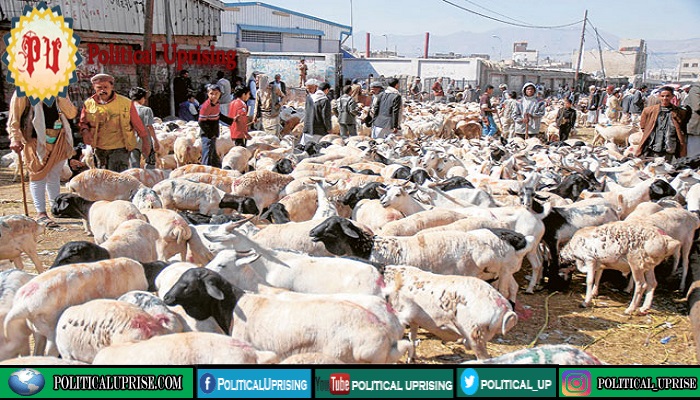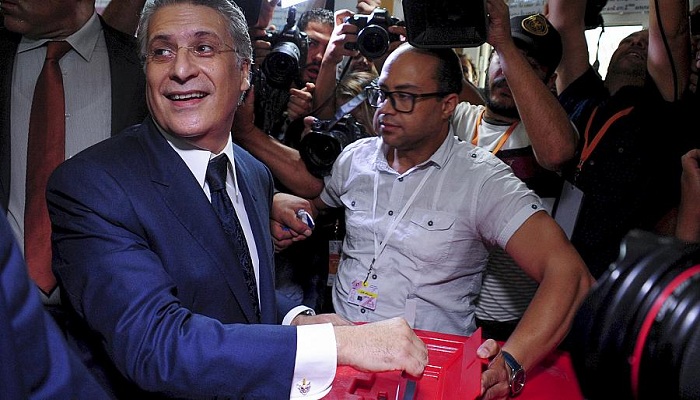Amnesty has urged Sudan’s transitional government to deliver on popular demands for sweeping change as the country marked first anniversary of protests.
More than 250 people were killed in violence linked to demonstrations that forced Omar al-Bashir to resign.
Sudan’s new transitional government must deliver on people’s demands for sweeping change as the country marked the first anniversary of mass protests that led to the removal of former president Omar al-Bashir, a rights group said.
Protests swept across the African nation in December 2018, sparked by a rally over soaring bread prices.
Read More:
- European leaders urge calm after fresh Tripoli assault
- Aung San Suu Kyi defends Myanmar genocide
- New investigation reveals role of US agent in constructing spy Programme
- Whistle-blower sentenced 5 years in jail
- African countries to meet January 13 over dam dispute
By April 2019, al-Bashir was toppled after being in power for 30 years.
Seif Magango, Amnesty International‘s deputy director for East Africa, the Horn and the Great Lakes said: “The transitional authorities must honour the commitments they made to restore the rule of law and protect human rights.”
The rights group said Sudan’s new government has shown positive signs of progress during its fragile transition to democracy, citing the repeal of a decades-old morality law and dissolution of the former governing party moves that have helped the Sovereign Council distance itself from al-Bashir’s disgraced rule.
According to doctors linked to the protest movement, more than 250 people were killed in the violence related to the demonstrations against al-Bashir and military rulers who initially replaced him.
To mark the anniversary, activists organised protests in cities across the country.
“I’ll remember the first day of our protest under tear gas and live ammunition, which didn’t stop us,” Hana Hussein, 21, told news agency.
“Now we can take to the streets in celebration. It’s a great achievement of our revolution.”
Badr Mohamed, 22, plans to use the uprising anniversary to demand accountability for the killings of fellow protesters.
“I will participate by carrying a banner calling for justice.”
Over the weekend, a court in Sudan convicted al-Bashir of money-laundering and corruption, sentencing him to two years in a minimum-security lockup.
The image of the former leader in a defendant’s cage “sent a strong message, on live TV for all of Sudan to see, that we are on the route toward justice”, said Sarah Abdel-Jaleel, a spokeswoman for the protest organisers.
But in the view of many demonstrators, Abdel-Jaleel added, “al-Bashir has not been held to account.”
Amnesty also called on the new government to hold security forces accountable for killing many people in their efforts to stifle protests against military rule, especially those behind a deadly crackdown on a huge sit-in outside military headquarters in the capital, Khartoum, in June. More than 120 were killed.
The government recently appointed independent judges to oversee investigations into the killings, a major achievement for the protest movement.
But even the most high-profile cases have shown no signs of official action, said Amnesty’s Sudan researcher, Ahmed Elzobier.
Families still find it difficult to bring cases against security officers, he added.
Al-Bashir is also wanted by the International Criminal Court on charges of genocide, war crimes and crimes against humanity.
The accusations relate to his role in the Darfur war that broke out in 2003 when ethnic minority rebels took up arms against his Arab-dominated government, which they accused of marginalising the region.
Sudan is under heavy international and regional pressure to reform. With the economy on the brink, the new government has made it a mission to get Sudan removed from the United States’s list of state sponsors of terrorism so it can attract badly needed foreign aid.
Many pro-democracy protesters say the revolution remains unfinished. Poverty, high prices and resource shortages that catalysed the original uprising continue to fuel frustration.
“We’re looking at a deep state that for 30 years has been plagued by corruption and economic crisis,” said Abdel-Jaleel.
“But if the nation is given an opportunity to achieve democracy and development and peace, that will be an achievement for the world, not just for Sudan.”
Amnesty has urged Sudan deliver on protesters demands.



